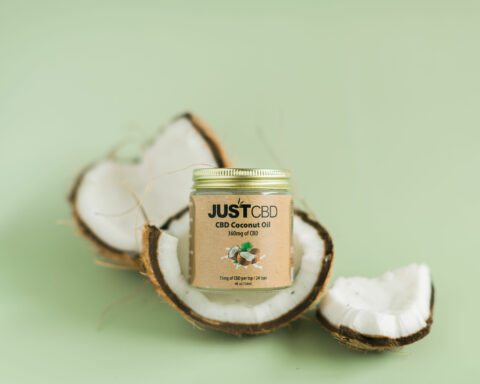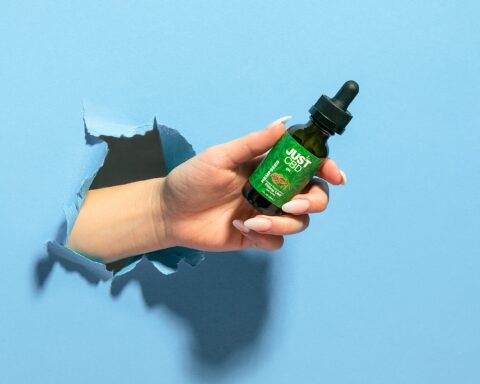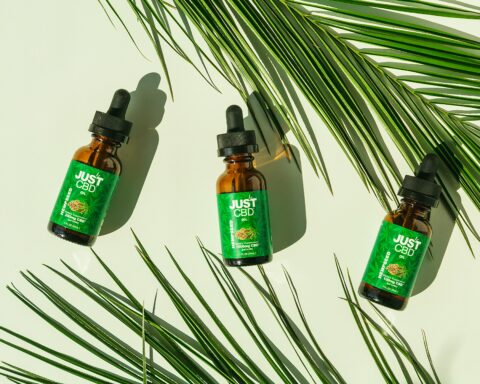Hemp is a type of Cannabis sativa that has been bred for its fiber rather than its psychotropic properties.
Many hemp cultivars contain none of the psychoactive properties associated with Cannabis. For centuries, this variety of industrial Hemp has often been used as a fiber supply, an oil source, and a vital source of nourishment. Hemp seeds are the most significant plant element in terms of nutrients. The seeds can be consumed whole or unhulled. They can also be made into milk that tastes like soy milk. One can use hemp seed oil similarly to how olive oil I used in the kitchen. There are currently hemp seed supplements on the market if you wish to include some of Hemp’s outstanding health benefits in your diet.
The Benefits of Using Hemp
The Cannabis genus, often known as the Cannabaceae family, consists of three distinct species. Cannabis sativa,indica, and ruderalis are among them. The THC content in hemp types of Cannabis is 0.3 percent or less. Marijuana strains have more than 0.3 percent THC. THC in higher concentrations can cause a high. The hemp plant’s main edible component is its seeds. The leaves can be used to create tea, but the seeds contain the majority of the nutrients. Hemp seeds contain more than 30% fat, including important fatty acids. Hemp’s purported health benefits are thus primarily derived from its seeds.
CBD Oil vs. Hemp Oil
Cold-pressing hemp seeds produce hemp oil. Hempseed oil is not the same as CBD oil. CBD oil is made by extracting CBD from the cannabis plant and combining it with a base oil. Coconut and olive oil are examples of base oils. Hempseed oil is derived only from hemp seeds. It does not come from the Cannabis plant. Hempseed oil has no intoxicating substances. You cannot use it to get high. Hemp oil contains distinct qualities as well as health benefits.
- Minerals such as zinc, iron, calcium, and others are essential fatty acids (EFAs) required for optimal health.
- Proteins, for example, are found in hemp oil.
- 7 Antioxidants, such as vitamin E7
Hemp oil can be used in salads, dips, and spreads like any other healthy oil. Hempseed oil has been shown in animal trials to reduce blood pressure. It may also lower the chance of having a stroke or heart attack. 8 However, this has not been demonstrated in human trials. Hemp oil is frequently used as a hair conditioner and a moisturizer for the skin. According to research, hemp seed oil can assist with dry, itchy skin and the symptoms of eczema, a common skin disorder. It may lessen the need for a prescription medicine to treat eczema symptoms.
Hemp Seeds
Hemp seeds contain a lot of fiber, both soluble and insoluble. Both kinds of fiber are necessary for digestion and general gut Gastrointestinal health. Hemp hearts are less fiber than whole hemp seeds since they lack a fibrous shell. Gamma-linolenic acid is also abundant in hemp seeds (GLA). 3 GLA is an omega-6 fatty acid that has been linked to numerous health benefits.
Hemp seeds have a 3-to-1 omega-3 to omega-6 fatty acid ratio. It is believed to be an ideal ratio for the brain and heart. Western diets are overly high in omega-6 fatty acids found in foods such as vegetable oil. However, most Western diets are deficient in omega-3 fatty acids (in seafood such as salmon). These are found in foods such as salmon and other cold-water wild-caught seafood. Whole hemp seeds contain 20% soluble fiber and 80% insoluble fiber. Hemp seeds include fiber, which may aid digestion. It may also aid in the reduction of harmful cholesterol and the improvement of heart health. Hemp seeds’ insoluble fiber has also been related to a lower incidence of diabetes.
Other Health Advantages
There is insufficient empirical evidence to support claims that Hemp is a safe or a successful therapy for any ailment. According to research, it is still used as a treatment for a variety of ailments, including:
- Asthma
- Cough \Bloating
- Arthritis \Syphilis
- Pneumonia
- Heart issues
- Urinary problems (increasing urine flow)
- Venomous warts (when applied to the skin)
Hemp Seed’s Potential Side Effects
It is difficult to discuss the benefits of hemp without finding out its limitations. Taking whole hemp seed by mouth can result in a variety of adverse effects, including Irritation of the throat, vomiting, nausea, Diarrhea, and Bradycardia, often known as a slow heart rate, which is a condition in which the heartbeats and Hypertension.
There is insufficient clinical study data to indicate that Hemp is safe for pregnant or breastfeeding women. Additionally, Consuming hemp seeds may not be as dangerous as consuming hemp leaves or other plant parts. However, the seeds can induce moderate diarrhea due to their high-fat content.
Medication Interactions. Avoid consuming Hemp when using cardiac glycosides or diuretics.
Selection
Hemp seeds are grown in various nations. Some people may prefer Hemp from Canada because of its flavor and tight government regulations to improve quality. Select goods that have undergone third-party laboratory testing for purity and potent contact act the manufacturer.
Hemp farmed in the United States, Europe, and Canada is subjected to harsher regulations than other nations, such as China.
Conclusion
Hemp seeds have a high nutritional value. They are rich in antioxidants, fatty acids, minerals, and vitamins. The shells provide fiber to the diet and crushing the seeds aids in absorbing other nutrients. Some research has revealed a link between hemp seeds and health benefits. However, these studies often use high-concentration extracts. While eating hemp seeds may have some health benefits, don’t eat too many of them. There is evidence that some seeds have THC levels higher than the legal limit. Eating a diversified diet with a variety of nutrients is the healthiest option.
References
Leonard, W., Zhang, P., Ying, D., & Fang, Z. (2020). Hempseed in the food industry: Nutritional value, health benefits, and industrial applications. Comprehensive reviews in food science and food safety, 19(1), 282-308.
- Products That Assist with Stress Relief - September 21, 2023
- TRÈFLE – THE ROAD TO THE 15TH - July 29, 2023
- Lovingly thought out educational toys - July 5, 2023









